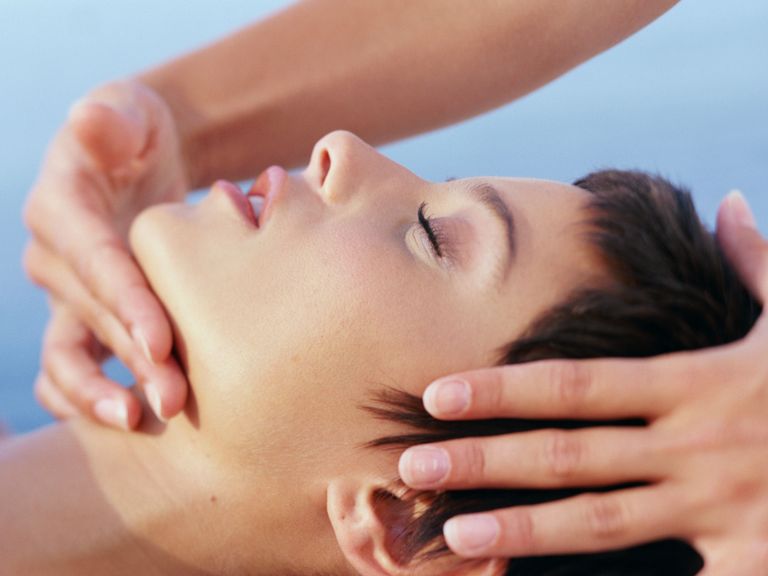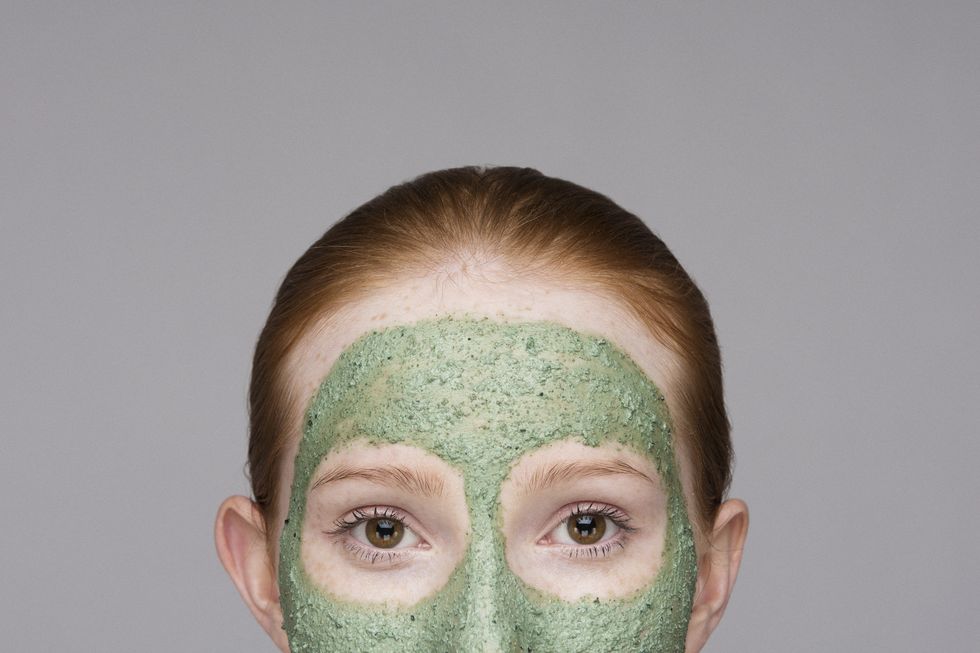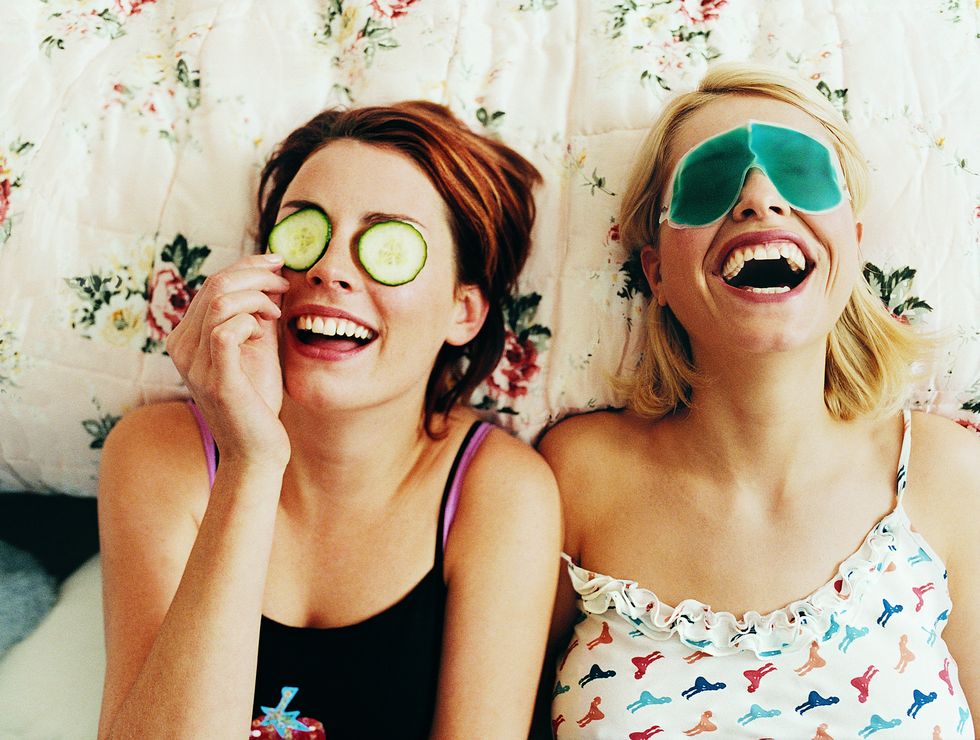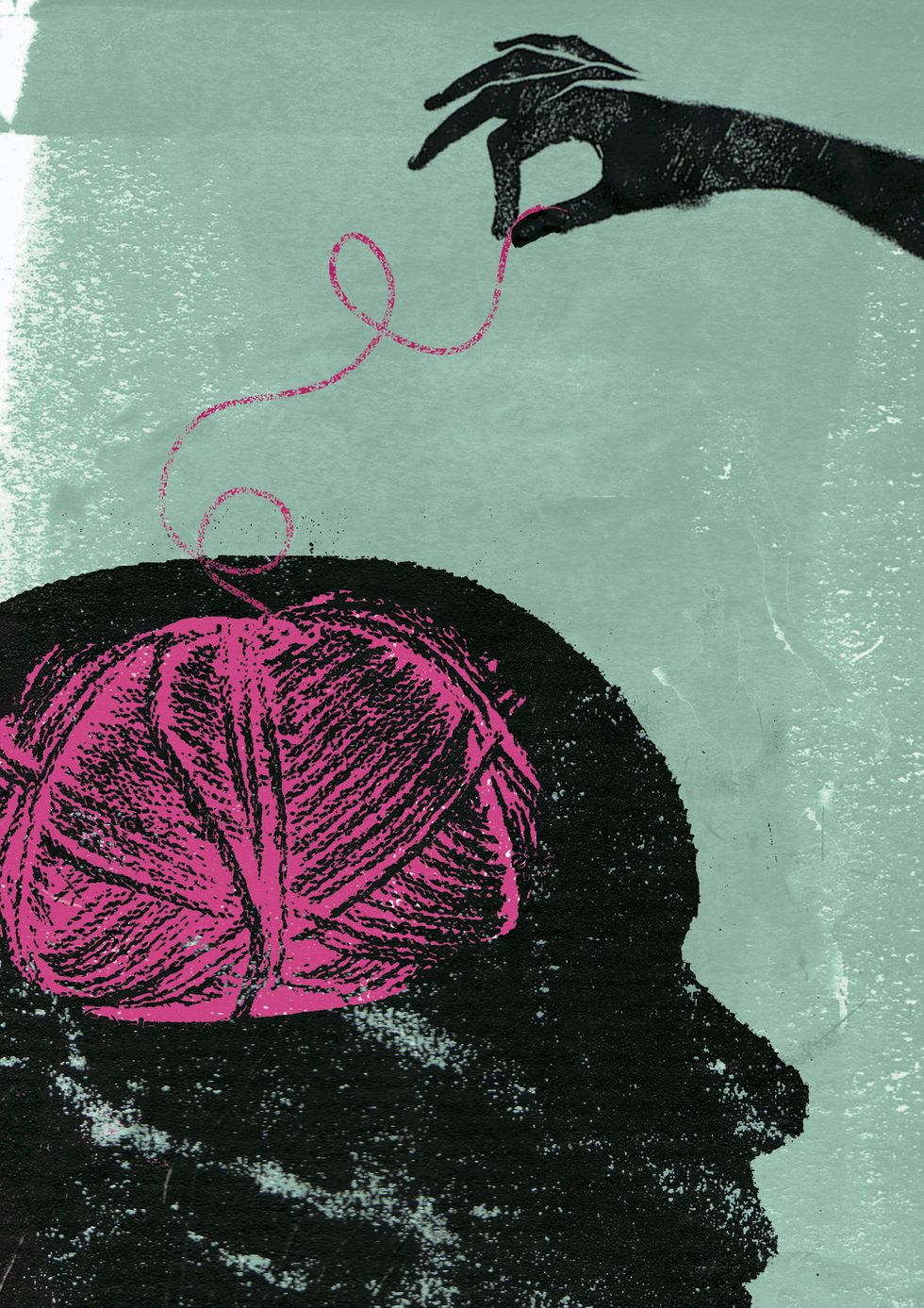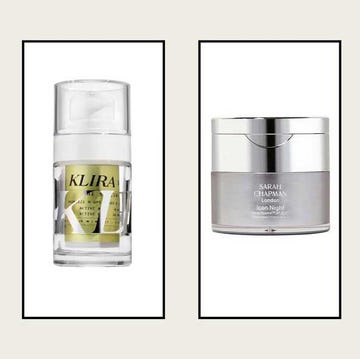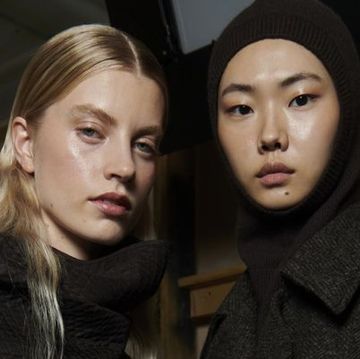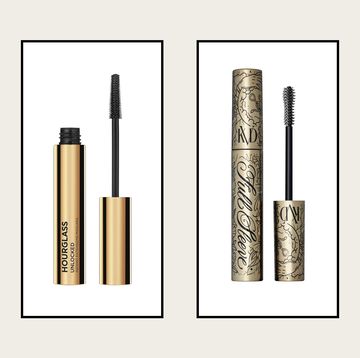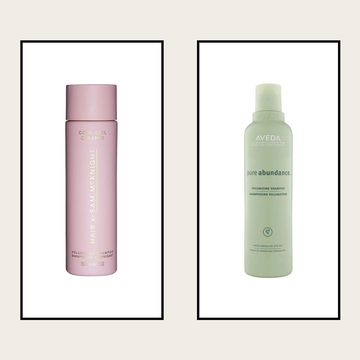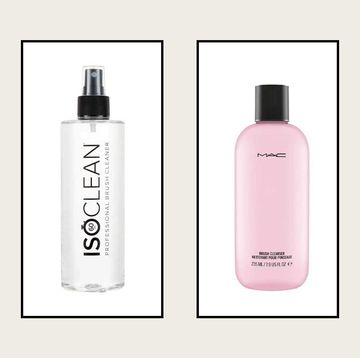When a new client came to Tasha Smith for reflexology, she didn't know the woman had been gifted the treatment by her late son before he died of cancer.
'She still wanted to use the voucher as it was from him,' she says. 'I was pressing on her foot, which corresponds with a pressure point in your head and, bless her, she just let go instantly. We're not trained to deal with that side of things, so when she broke down and told me about him, I literally just started crying with her. She was only in her mid-forties.'
The intimate, non-threatening environment which makes clients feel comfortable enough to strip off for a Brazilian also prompts people to open up about lost loved-ones, work stress and relationship problems. Tasha sees 'many, many tears' in the salon but, as she's not a mental health professional, she isn't allowed to make recommendations that clients seek counselling or psychotherapy, even if she feels they'd benefit from treatment.
When some areas of the country are faced with NHS waiting lists of up to four years for mental health treatment, and private therapy is an expense many can't stretch to, it's no surprise that confiding in a beautician is an appealing prospect. Tasha, who has experienced depression herself, thinks some clients' willingness to chat with a beautician rather than a therapist is about more than just cost.
'A lot of people don't want to go and get help, they'd rather have help come to them,' she says. 'Personally, I felt so uncomfortable admitting 'actually, I need help'. We don't force people to talk, we don't make people offload to us.'
Tasha attributes her clients' openness to the relaxed salon environment and the fact that many clients are aware of beauticians' confidentiality agreements, which prevent them from revealing clients' problems unless they feel they are in imminent danger.
'My beauty therapist may as well be my best friend,' says Bo Tallentyre, a 21-year-old blogger. 'We actually have similar issues with our mental health, so speaking to someone with the same worries and fears as I have is a big help.'
The listening skills which are inherent to beauty therapy meant former beautician Sara Bertolini's transition to working as an Allied Health Manager at a psychiatric hospital was a natural career step.
'I can easily tune in to what patients are not saying rather than what they are saying,' she says. 'Beauty therapy has taught me skills that would take years to learn as a therapist.'
Sara re-trained as a mental health worker following the death of her husband and now teaches her interns the skills she's carried over from her previous job, of reading body language and connecting with people. But Sara says people 'open up more with a beauty therapist'.
'During a Brazilian wax there is a certain vulnerability there that makes all the social barriers disappear. I think clients don't feel as judged talking to a beauty therapist as a psychologist – they see beauty therapy as their time to just be.'
As well as the comfort of speaking about their worries in confidence, research suggests that beauty clients' mental health can also benefit from the beauty treatments themselves. Multiple studies have shown that treatments such as massage can help alleviate symptoms of anxiety and depression, and NHS guidelines signpost massage as a treatment which benefits some panic disorder sufferers.
For Megan, a 24-year-old bartender, hot stone massage not only alleviates the symptoms of her depression, but her beauty therapist's insistence that she's deserving of relaxation makes her feel 'less self-indulgent' about devoting time to feeling good. She insists, however, that it isn't a replacement for treatments like Cognitive Behavioural Therapy (CBT) and medication.
'I wouldn't say 'If you've got depression, have a massage and you'll be cured', but it does help,' she explains. 'It's good at getting you out of your own thought processes and relaxing, which is something I find tricky with my depression.'
Jeanine Connor, a former beautician turned psychotherapist, also used to notice treatments' psychological impact on her beauty clients.
'I had a client who suffered from ME and depression who I used to give a pedicure once a month. The first time I met her she said she never had colour on her toes and I encouraged her to try a colour. She eventually chose a bright red and her face really lit up when I'd finished. Her mood was instantly lifted.'
Connor attributes these kinds of experiences both to the self-esteem-boosting act of caring for your appearance, and the physical contact clients have with their beautician.
'I remember giving one client a back massage when she started to sob – I came to understand that in releasing the physical tension I had released some emotional tension too. But, as a beauty therapist, I didn't feel like I could do much to help her. I think that was a turning point for me in wanting to do more.'
Tasha Smith, too, is undergoing mental health training with a view to taking on counselling clients alongside her beauty work, and to better understand what her beauty clients may be struggling with.
'I have had one or two clients who have just sat with me and cried while I've been giving them a cuddle but, other than that and saying 'we're really sorry, we hope you feel better soon,' we're limited on what we can do,' Tasha says. 'It's awful, especially where you build up a connection with people and you do genuinely care.'
For beauticians who are undertaking the emotional labour of a counsellor without the experience or professional support that a mental health worker would have, more training could equip them with coping mechanisms for when clients emotionally unload.
Some of the stories Tasha hears affect her mood 'for the day or even for the rest of the week'.
'Sometimes I do bring it home and I'm a bit mopey,' she says. 'I think people think we just brush it off and then we go back to doing what we do but, when it's something quite hard-hitting and heavy, it definitely does stay with us.'
Though her VRQ offered some information on potential emotional responses to lengthier treatments like reflexology and aromatherapy, Tasha would like to see beauticians provided with more training on how to spot mental health conditions.
'If we were able to identify major factors that could point to depression or severe anxiety then we could suggest they visit their GP and point them in the right direction. That would be so much better than giving them a pat on the shoulder and sending them on their way.'
